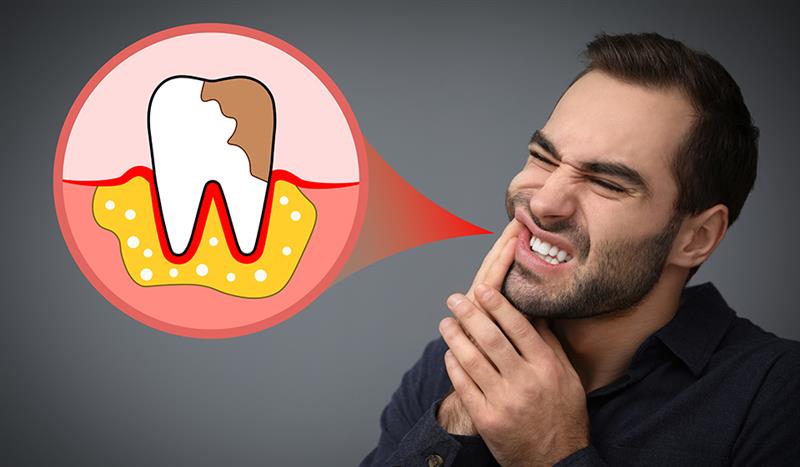Gum disease, also known as periodontal disease, is one of the most common oral health issues worldwide, and yet, it’s also one of the most overlooked. It begins quietly, often with mild irritation or bleeding while brushing, and if left untreated, it can progress to serious infections and even tooth loss. Many people fail to realize that gum health is just as important as tooth health. Without healthy gums, your teeth simply cannot thrive. Visiting a trusted dentist in Houston can make a significant difference in preventing gum disease from developing or worsening.
The good news is that gum disease is both preventable and treatable when addressed early. By learning the causes, recognizing the symptoms, and committing to effective prevention, you can protect your smile and overall well-being.
Causes of Gum Disease
Gum disease develops when bacteria build up around the teeth and gums. Over time, this bacteria forms plaque and eventually tartar, which irritates and inflames the gums. While poor oral hygiene is the most common cause, several other factors can increase the risk of developing gum disease:
- Inadequate brushing and flossing—Allowing plaque to remain on teeth leads to gum irritation.
- Smoking and tobacco use – Nicotine reduces blood flow to the gums, slowing healing and increasing infection risks.
- Hormonal changes—Pregnancy, menstruation, or menopause can make gums more sensitive and prone to inflammation.
- Medical conditions—Diabetes, autoimmune diseases, and heart disease can worsen gum health.
- Medications—Certain prescriptions cause dry mouth or gum swelling, both of which heighten risks.
- Genetics—Some individuals may be more predisposed to gum disease due to hereditary factors.
When plaque and tartar are left untreated, the gums begin pulling away from the teeth, forming pockets that harbor even more bacteria. This cycle accelerates the progression of periodontal disease.
Recognizing the Symptoms of Gum Disease
The early signs of gum disease can be easy to dismiss. Many patients ignore the symptoms until the condition has progressed. Regular checkups with a dentist in Houston ensure that even subtle warning signs are caught before they lead to long-term complications.
Look out for these common symptoms:
- Red, swollen, or tender gums
- Gums that bleed while brushing or flossing
- Persistent bad breath (halitosis)
- Receding gum line, making teeth appear longer
- Loose or shifting teeth
- Pus or discharge near the gums
In its early stage, gingivitis may only involve mild gum irritation, but if left untreated, it can develop into periodontitis, a much more severe condition where bone and tissue damage occur. At that stage, teeth may loosen and require extraction.
Prevention Tips for Healthy Gums
Prevention is always more effective than treatment. Small, consistent habits can drastically reduce the likelihood of developing gum disease. Here are practical steps you can take:
- Brush teeth at least twice daily using fluoride toothpaste.
- Floss once a day to remove plaque from areas brushing cannot reach.
- Use an antimicrobial mouthwash to reduce bacteria.
- Avoid smoking and limit alcohol consumption.
- Eat a balanced diet rich in vitamins and minerals that support gum health.
- Schedule dental cleanings at least twice a year.
When patients commit to these practices, they often avoid the discomfort, cost, and stress of advanced gum treatments.
Treatment Options for Gum Disease
If gum disease does develop, treatment depends on the severity of the condition. Dentists provide a range of solutions to restore gum health:
Professional Cleaning and Scaling
In the early stages, a deep cleaning removes plaque and tartar buildup above and below the gumline. This process, called scaling and root planing, smooths the tooth roots to help gums reattach.
Medication
Dentists may prescribe antibiotics, antimicrobial rinses, or gels to control bacterial infection.
Advanced Procedures
For more severe cases, surgical options such as flap surgery, soft tissue grafts, or bone regeneration may be recommended to restore support and prevent further tooth loss.
Maintenance
Ongoing care is essential. Patients who have undergone gum disease treatment need regular follow-ups and cleanings to ensure the infection doesn’t return.
When to See a Dentist
Many people wait until pain becomes unbearable before seeing a dentist. However, gum disease often progresses silently. If you experience bleeding gums, bad breath, or notice receding gum lines, don’t delay treatment. Early diagnosis is the difference between a simple cleaning and complex surgical interventions.
Regular visits also enable dentists to detect other oral health issues, such as cavities, oral cancer, and jawbone problems. By making checkups part of your routine, you safeguard not just your smile but your overall health.
Conclusion
Gum disease is more than just a dental concern; it’s a health issue that affects your entire body. By understanding the causes, recognizing symptoms, and committing to prevention, you can protect your smile for years to come. Treatments are available at every stage, but the best outcomes always come from early action.
If you’re searching for reliable care and lasting results, Unident Family Dentistry in Houston is here to help you take control of your oral health and enjoy a lifetime of confident smiles.






